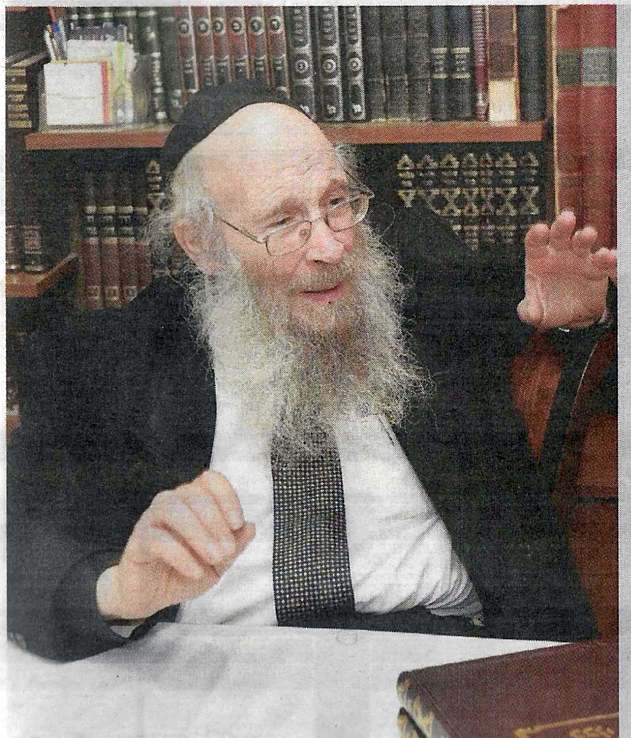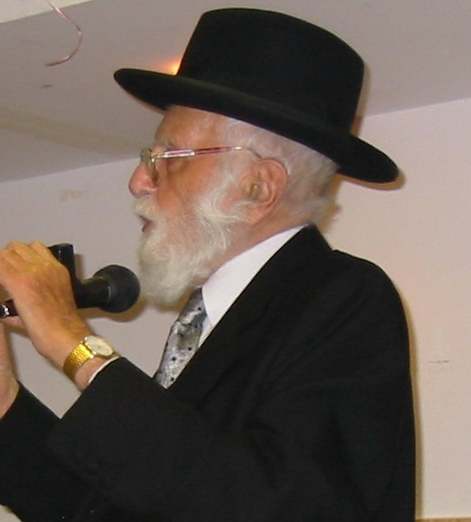  |
|
| |||||||||||||
|
This Google Custom Search looks only in this website. A New Chareidi Community in Mexico
The members of the Moetzes Gedolei veHachmei HaTorah here and in the U.S., as well as the revered roshei yeshiva here and abroad, joined in the letter of HaRav Gershon Eidelstein who agreed to assume the presidency of the new Torah city in Mexico and direct its establishment and Torah lifestyle. Community rabbonim and kollel heads also affixed their signatures to an additional letter of the Rosh Yeshiva with blessings for this upcoming city of Torah which will provide a solution to the local public's crying distress of lack of proper housing within the conditions of a Torah city.
The gemara in Yevomos discusses the subject of the mourning practiced between Pesach and Shavuos. "Twelve thousand pairs of Rabbi Akiva's disciples, from Gevat to Antipatras, all died during one period because they did not show respect for one another."
Rabbi Yehoshua says that this is composed of two issues, the one, that they lacked due respect for the Torah, as the Maharsha notes there, that they did not feel respect for the Torah of their fellow talmid. But there is another aspect: they lacked due respect for their fellow talmid himself.
This can be explained as follows: a person incorporates two powers, a positive one and a negative one. The positive one is the power of respecting and recognizing the good in his fellow man and to identify what the latter can contribute to him. The negative power is one of dismissing him, downgrading him.
A person must always promote the positive aspect by honoring the other and not, ch'vsh, belittling or mocking him. Therefore, when two sit together and talk in learning, with each one attentive to what the other says, it shows that they are using their positive strengths in mutual respect, showing that each one admits that the other has something to contribute to him.
...
The essay by HaRav Leib Baron zt"l of Montreal, was originally published in 1995=5745, that is, 26 years ago.
"Moshe Rabbenu [at the time of the redemption from Egypt] told Bnei Yisroel Hashem's message, that `this will be a sign for you that I sent you; when you take the people out from Egypt you shall worship Elokim on this mountain'(Shemos 3:12). The people then asked him: `Moshe Rabbenu, when will this worship take place?' He answered: `At the end of fifty days.' And the Jews counted each single day separately . . .." (aggada cited by the Ran in Pesochim [28a of the dapei HaRan] in reference to the obligation of sefiras HaOmer).
When Moshe Rabbenu was still serving as a shepherd of Yisro's sheep it was foretold to him that fifty days after the Exodus from Egypt the Jews would worship Hashem. This revelation was in the Sinai desert when Hashem revealed Himself at the burning bush, long before Bnei Yisroel left Egypt.
Interestingly, the Torah does not mention at all that HaKodosh Boruch Hu commanded Moshe to let Bnei Yisroel know His intention. It seems that Moshe Rabbenu of his own accord decided that it was necessary to let the Jews know that fifty days after their leaving Egypt they would receive the Torah.
What was the reason for Moshe Rabbenu's decision?
* * *
|
||||||||||||




.jpg)


